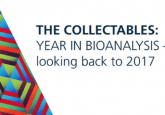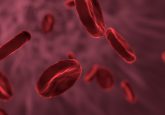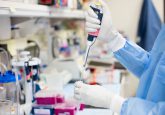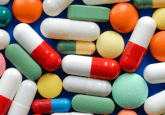Ask the Experts: microsampling

 In this ‘Ask the Experts’ feature we explore some of the recent developments in Microsampling with leading experts in the field. For the past couple of years, there have been a number of exciting developments in microsampling. The development of techniques such as VAMS and solid phase microextraction (BioSPME) has transformed sample preparations and methodological practices.
In this ‘Ask the Experts’ feature we explore some of the recent developments in Microsampling with leading experts in the field. For the past couple of years, there have been a number of exciting developments in microsampling. The development of techniques such as VAMS and solid phase microextraction (BioSPME) has transformed sample preparations and methodological practices.
In this special focus we discuss some of the various microsampling techniques, including advantages and challenges faced when using these techniques. Check out what some of the key thought leaders think about microsampling in the excerpt below:
How do you see microsampling techniques evolving over the next 5–10 years? What challenges do you think will remain or appear?
Manipulation of microsamples remains a significant challenge for many labs. High throughput automated analysis of microsampling devices seems to be within reach. There is a significant trend towards automation, and microsampling workflows will be strongly affected by it. Completely automated workflows, from sample receipt to answer, are conceivable at this point and I think within 5–10 years they will be a reality.
Stuart Kushon (Neoteryx)
The main challenge is full acceptance so that microsampling becomes the default approach for preclinical safety testing. The complete removal of satellite groups is the second challenge, as microsampling is currently primarily focused on exposure measurements… I envisage that over the next 5–10 years we will see a lot of innovation around the sampling technique with new technology being put forward, for example the MSW2 device from Shimadzu (Kyoto, Japan).
Tim Sangster (Charles River)
There will be continued advancements in the specificity of microsampling techniques. Microsampling devices containing antibodies for highly specific assays are within the foreseeable future. Evolution of microsampling with biosensors has the potential to allow rapid patient assessment in under developed countries that do not have access to advanced laboratory techniques.
Craig Aurand (Supelco/Sigma-Aldrich)
From a technical perspective, I think there is scope for the further development of novel sample collection devices. From a study design perspective, I hope we will see the logistic simplicity of microsampling increasingly applied in late-stage clinical studies to improve PK data generation by ‘decoupling’ collection of blood samples from clinical site visits. This would allow for samples to be taken at home, possibly by the patients themselves. This could enable wider participation in PK aspects of late-stage studies, and allow for collection of samples at time points that would be impractical in a clinic setting.
Chris James (Amgen Inc.)
To learn more about the leading opinions on recent developments, challenges and future directions in microsampling technologies check out the articles below:
- Part 1: Ask the Expert on Microsampling ¦Tim Sangster (Charles River)
- Part 2: Ask the Expert on Microsampling ¦ Craig Aurand (Supelco/Sigma-Aldrich)
- Part 3: Ask the Expert on Microsampling ¦Christopher James (AMGen, Inc.)
- Part 4: Ask the Expert on Microsamlping ¦ Stuart Kushon (Neoteryx)
Experts
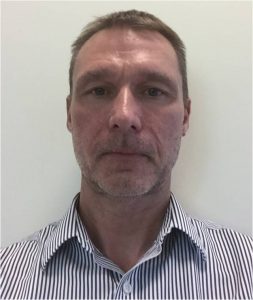
Christopher James (AMGen, Inc.)
Christopher A James, PhD, is a Director in the Department of Pharmacokinetics and Drug Metabolism at AMGen, Inc. He received his PhD from London University, working on the bioanalysis and pharmacokinetics of oncology drugs. In his current role, he supervises the development and application of LC–MS bioanalytical methods for small molecule, peptide and large molecule drugs to support discovery, GLP and early clinical studies. Throughout his career, he has been extensively involved with all aspects of bioanalysis including sample preparation, automation, LC–MS/MS, microsampling, and method validation. He has held leadership positions in a number of innovator companies working in the UK, Italy and USA. He has authored or coauthored over 40 publications and 5 book chapters on bioanalytical topics.
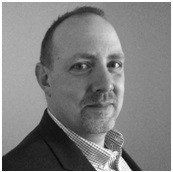
Craig Aurand (Supelco/Sigma-Aldrich)
Craig Aurand is the Innovation Manager for the Advanced Analytical division of MilliporeSigma. Craig’s primary role is identification and development of innovative analytical techniques for life science applications. He is responsible for the development of innovative chromatographic and sample preparation devices for life science applications, and has published numerous presentations and publications focusing on novel chromatographic separations and sample preparation techniques. Craig has more than 15 years experience in product and application development with emphasis in liquid chromatography/mass spectrometry techniques. His most recent research has focused on the field of microsampling techniques in bioanalysis.
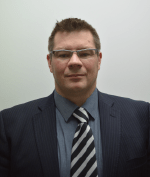
Tim Sangster (Charles River)
Tim Sangster is a well traveled bioanalytical chemist, having worked in Scotland, Italy, England, America and finally back to Scotland to head up the Bioanalysis and Immunology Department for Charles River, Edinburgh six years ago. During his travels he has gained experience in both CROs and Pharma supporting drug development from a bioanalytical perspective from Discovery through to market. Currently Tim’s main scientific focus is in the use of microsampling to reduce and refine toxicology study designs as well as applying it to other application areas and also the use of LC-MS in the analysis of macromolecules.
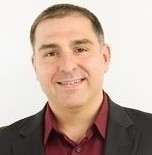
Stuart Kushon (Neoteryx)
Stuart Kushon is currently the Research & Development Manager at Neoteryx (CA, USA), a microsampling focused company. In his current role, he leads the development effort for simple, quantitative and automatable microsampling solutions. Prior to joining Neoteryx, Dr Kushon was the Senior Scientist responsible for sample preparation product development at Phenomenex (CA, USA), where he built a vast wealth of microsampling expertise as the principal investigator and project lead for the Mitra Microsampling Device along with a series of sample preparation and HPLC product offerings. Prior to that he served as the Manager of Chemistry Research & Development at a startup where he directed the development of products (both instruments and assays) using a novel fluorescence detection platform and a rapid immunoassay platform for medical, biodefense and high throughput drug discovery applications. He acquired his PhD in chemistry from Carnegie Mellon University (PA, USA), where he studied the thermodynamics and kinetics of binding of small molecules, oligonucleotides and their analogs.


